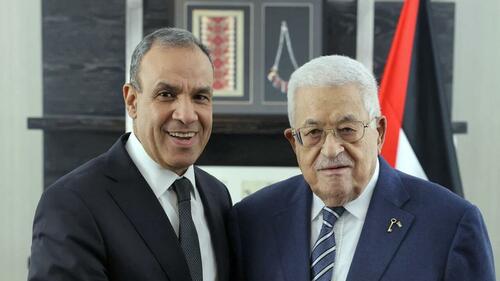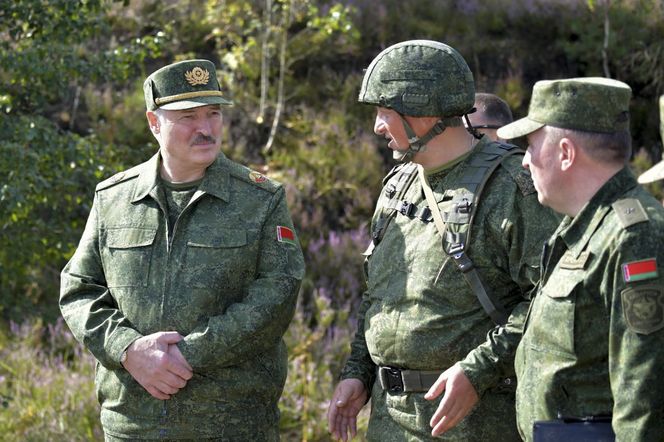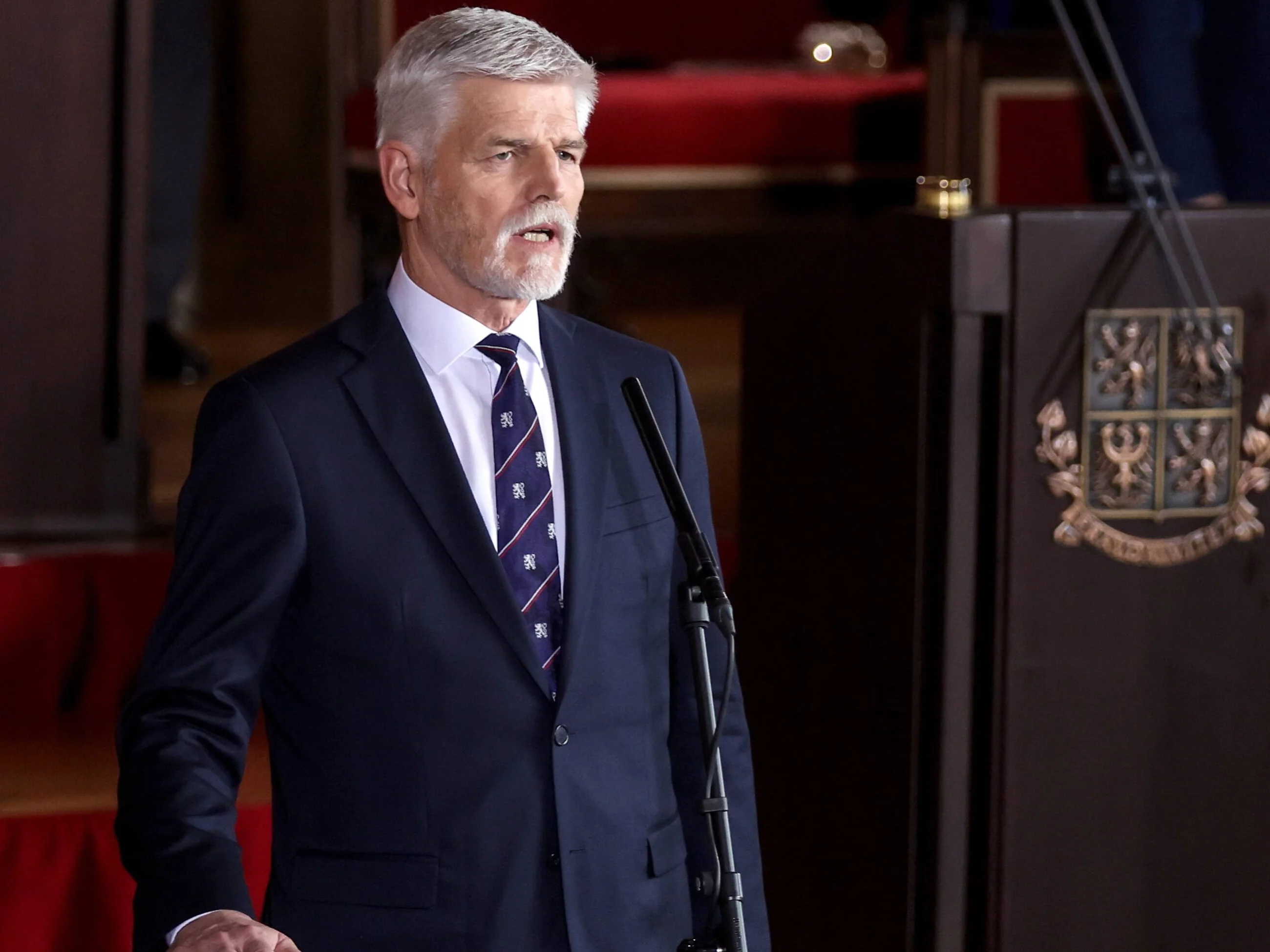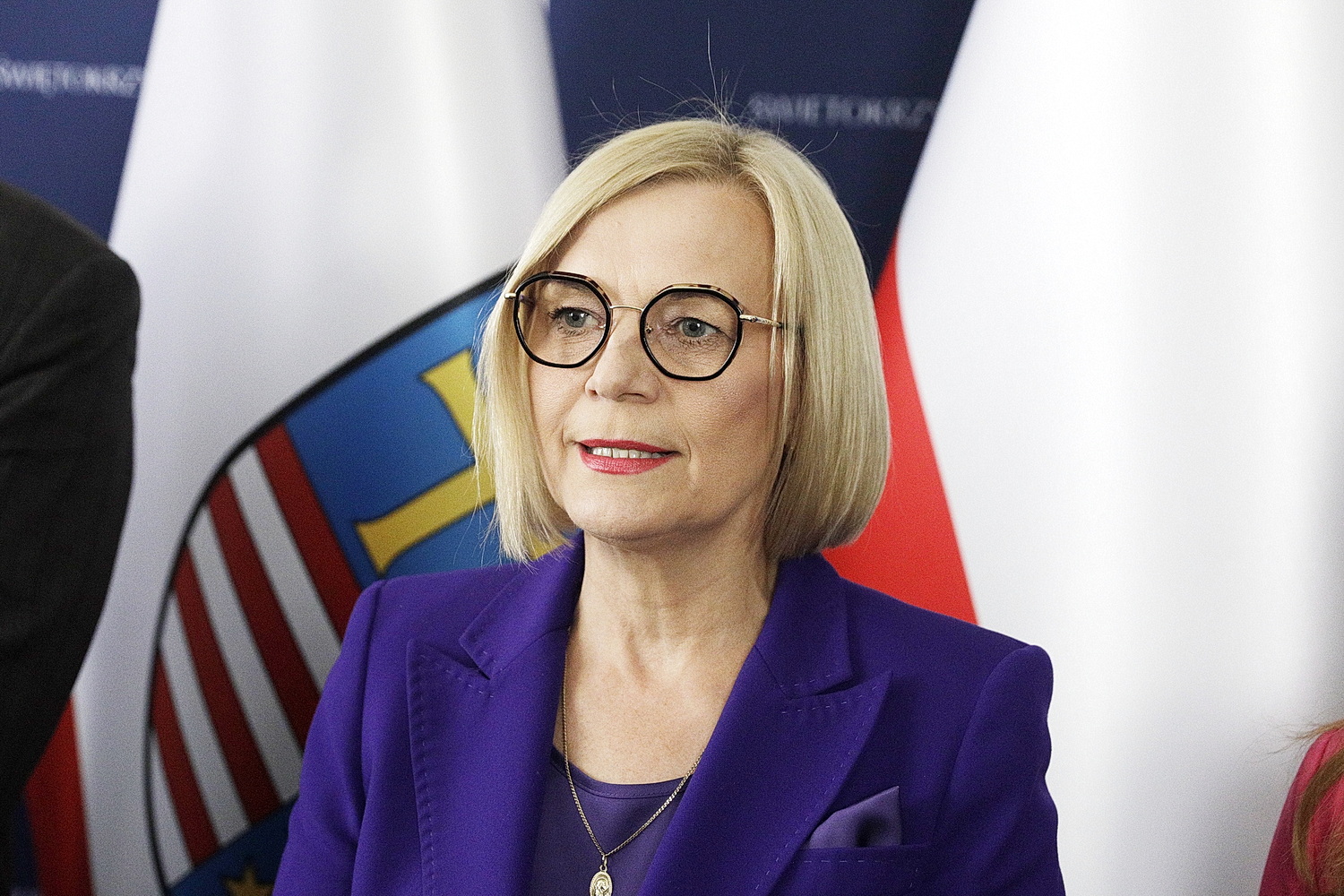
Egypt Training Palestinian Forces To Govern Post-War Gaza
Via Middle East Eye
Egypt has been training Palestinian forces for months to take over the security administration of the Gaza Strip, as part of its plan for post-war reconstruction and governance of Gaza, security and diplomatic sources told Middle East Eye.
An agreement to train Palestinian forces in Egypt and Jordan has been in place since the first Palestinian Police Donors Conference in Oslo in December 1993. In April, Egyptian and Palestinian media reported that 300 Palestinian Authority security personnel were sent to Cairo: 100 police officers, 100 national security officers, 50 preventive security officers and 50 intelligence officers, as part of the Egyptian reconstruction plan.
 Palestinian Authority President Mahmoud Abbas (R) meets with Egypt’s Foreign Minister Badr Abdelatty, via AFP.
Palestinian Authority President Mahmoud Abbas (R) meets with Egypt’s Foreign Minister Badr Abdelatty, via AFP.“All of these trainees are affiliated with the Fatah movement and loyal to the PA under Mahmoud Abbas,” an Egyptian security source told MEE. “Cairo avoided including individuals loyal to Palestinian leader Mohammed Dahlan so as not to provoke objections from the PA leadership in Ramallah, and to ensure the idea receives Saudi support,” the source added.
Another portion was trained in Jordan, but the numbers trained were not large, as both Cairo and Amman were hoping to obtain Gulf funding to continue the effort, the source said.
The 1993 Oslo conference was convened at the invitation of 14 donor countries, in addition to the European Union, the United States, the World Bank, the Palestine Liberation Organisation and Israel. Egypt and Jordan were the only two Arab countries to attend the conference, and a memorandum of understanding was signed to train thousands of Palestinian police officers, before the actual deployment of Palestinian police to Gaza and Jericho began in 1994. The number or batches of forces receiving this training were not announced.
Since the 1993 agreement, several of the PA’s forces have been sent to Cairo to attend security and military training courses at the Police Academy, the Military Academy and the Higher Military and Strategic Studies Academy (formerly the Nasser Higher Military Academy), which is a military academy in Egypt specialising in advanced military studies.
Reconstruction plan
Since the beginning of the Israeli assault on Gaza in October 2023, Egypt has been training young people from Gaza or who hail from the enclave, some residing and educated in Egypt, others who fled to Cairo after the war began, and others residing in the West Bank whose families originally come from the Gaza Strip, to carry out security administration, take on police duties and later govern the Gaza Strip, diplomatic and security sources told MEE.
This is part of the reconstruction plan proposed by Egypt during the Arab Summit in March. The plan aims to restore PA governance by working with Jordan to train Palestinian police for deployment in the strip, supported by political, financial and international backing, potentially involving other countries in rehabilitation efforts.
The plan also proposes that the UN Security Council consider deploying international protection or peacekeeping forces in both Gaza and the West Bank, within a broader framework and timetable for establishing a Palestinian state and building its institutional capacity.
A key challenge, according to the plan, would be the presence of multiple Palestinian armed groups, which the plan argues can only be resolved through a credible political process that addresses the root causes and restores rights to Palestinians.
The plan, however, has not received any approval or Gulf, particularly Saudi, support, an Egyptian diplomatic source told MEE. Egypt’s President Abdel Fattah el-Sisi had attempted to persuade Gulf states of the Egyptian reconstruction plan in a closed meeting held in Riyadh, Saudi Arabia, prior to the Arab Summit, the source said.
The plan, which Egypt proposed for what is known as “the day after the war ends”, was presented as an alternative to US President Donald Trump’s plan to displace Gaza’s residents to establish the “Gaza Riviera” resort.
However, Saudi Arabia and the United Arab Emirates refused to provide any support or funding for the Egyptian plan, or for any alternative plan, before the war ends, conditioning such support on the disarmament of Hamas and the removal of its fighters from the Gaza Strip before engaging in any reconstruction process or transferring funds to Cairo, the diplomatic source added.
Aly el-Raggal, a security analyst and researcher at the University of Florence in Italy, said that this plan serves many Egyptian interests, particularly Egypt’s security penetration into the Gaza Strip, something Cairo sees as a necessity. “The deeper its security presence inside Gaza, the greater its political and social influence, and the greater its regional role,” he told MEE. “This is a necessary course of action at present, especially in light of the significant curtailment of Egypt’s role in all regional files.”
’A vision for security’
However, Rajjal added, this security plan proposed by Egypt is impossible to implement under the current circumstances and with the presence of armed factions inside the strip.
“The condition for this plan to materialize is the end of the war and the end of Hamas and the rest of the resistance factions as well. This is not possible according to the current realities inside the Strip, especially in light of the decision by the Israeli Security Cabinet to occupy the Gaza Strip.”
Egypt’s Foreign Minister Badr Abdel Aaty had referred to the forces Cairo is training to govern the strip during the two-state solution conference held in New York last month.
Egypt has continued keeping its border with Gaza closed with massive razor wire & several layers of tall fencing…
Egypt continues to keep its border with Gaza closed with massive razor wire, multiple layers of border fence, large numbers of troops and armored vehicles. pic.twitter.com/2OwwOMwpk2
— Oli London (@OliLondonTV) March 21, 2024
“We have a vision for security arrangements and the governance of the Gaza Strip and who will manage the strip on the next day,” he said. “Egypt is training hundreds of Palestinians to take over security tasks in Gaza.”
Abdel Aaty added that Cairo continues to provide security training programs for PA forces, to enable them to enforce the law in Gaza and the West Bank.
“This would help create a suitable climate for the establishment of a contiguous Palestinian state, to support the capabilities of the Palestinian Authority so that it can perform its role in both the Gaza Strip and the West Bank in preparation for launching the political negotiation process.”
On 29 July, Egypt joined Saudi Arabia, Qatar, Turkey and the Arab League in endorsing the New York Declaration on a two-state solution, which calls on Hamas to relinquish control of Gaza and hand over its weapons to the Palestinian Authority.
According to Egyptian security sources, Cairo had initially resisted linking disarmament to ceasefire negotiations. However, under sustained pressure from the UAE and Saudi Arabia, Egypt shifted its stance, aligning itself with regional efforts to initiate what has been described as a “surrender process”, the sources told MEE last week. This position aligns with Israeli preconditions, backed by Washington, for ending the war on Gaza.
Tyler Durden
Wed, 08/13/2025 – 03:30







![Польская экономика ускорилась [+MP3].](http://lewiatan.org/wp-content/uploads/2025/08/mariusz13.jpg)





